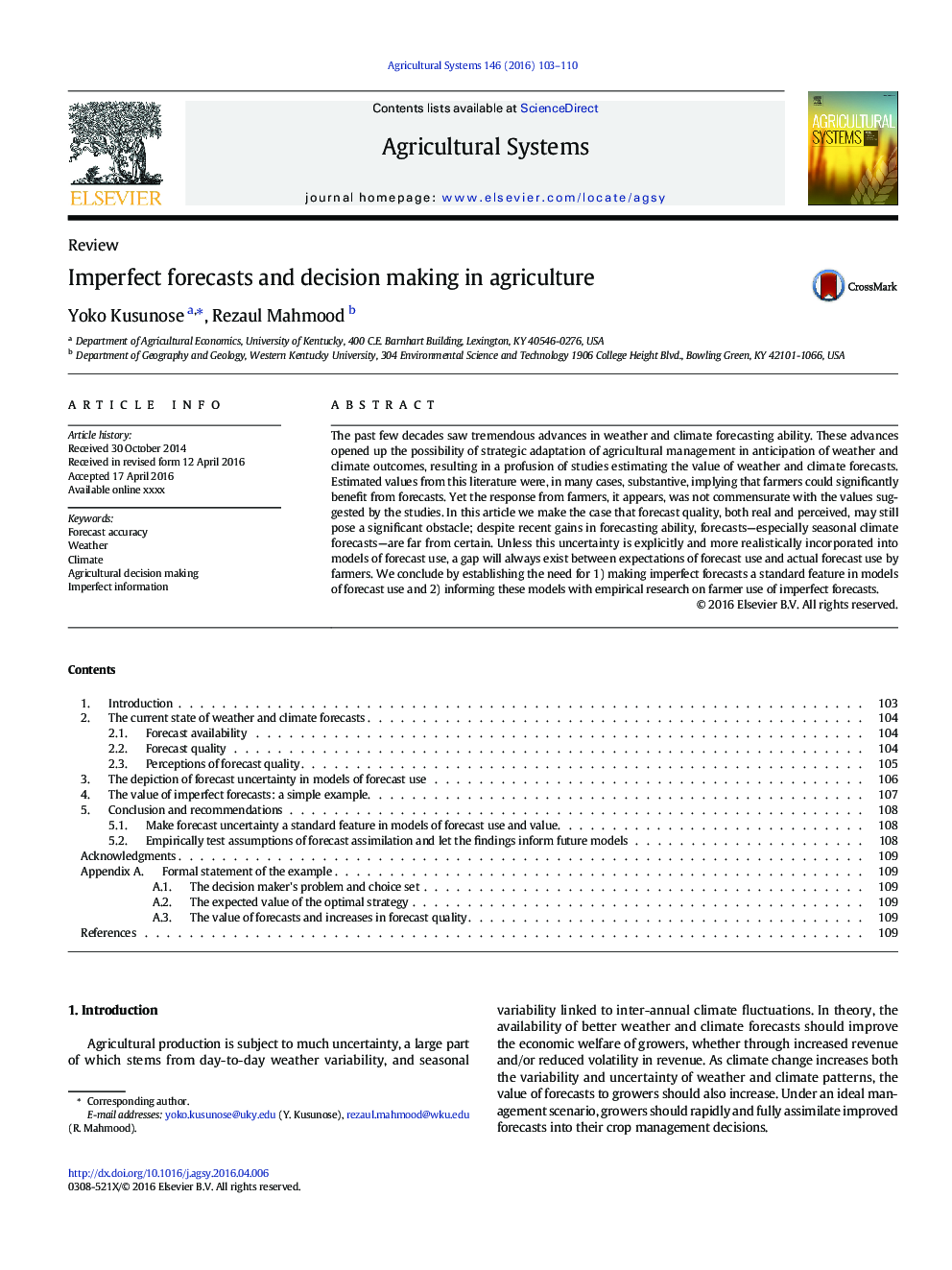| Article ID | Journal | Published Year | Pages | File Type |
|---|---|---|---|---|
| 6368382 | Agricultural Systems | 2016 | 8 Pages |
Abstract
The past few decades saw tremendous advances in weather and climate forecasting ability. These advances opened up the possibility of strategic adaptation of agricultural management in anticipation of weather and climate outcomes, resulting in a profusion of studies estimating the value of weather and climate forecasts. Estimated values from this literature were, in many cases, substantive, implying that farmers could significantly benefit from forecasts. Yet the response from farmers, it appears, was not commensurate with the values suggested by the studies. In this article we make the case that forecast quality, both real and perceived, may still pose a significant obstacle; despite recent gains in forecasting ability, forecasts-especially seasonal climate forecasts-are far from certain. Unless this uncertainty is explicitly and more realistically incorporated into models of forecast use, a gap will always exist between expectations of forecast use and actual forecast use by farmers. We conclude by establishing the need for 1) making imperfect forecasts a standard feature in models of forecast use and 2) informing these models with empirical research on farmer use of imperfect forecasts.
Related Topics
Life Sciences
Agricultural and Biological Sciences
Agricultural and Biological Sciences (General)
Authors
Yoko Kusunose, Rezaul Mahmood,
